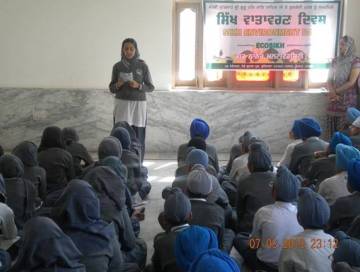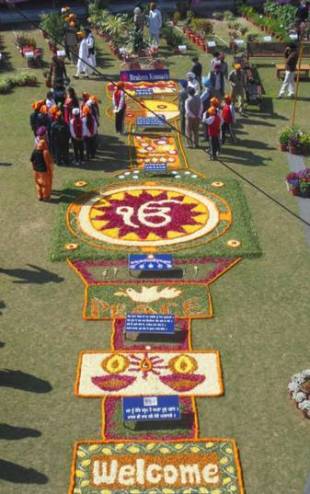MEDIA RELEASE
|
A grand action by Sikhs for Nature and Mother Earth
Chandigarh, March 14, 2013: Tens of thousands of Sikhs across the world celebrated the Sikh Environment Day today. EcoSikh, a Washington based organization, had received confirmation from 1,550 Sikh Gurdwaras, organizations and institutions from India and abroad in response to their appeal to celebrate March 14, 2013 as Sikh Environment Day for the third consecutive year. This is the day when Guru Har Rai, known for his love and sensitivity towards nature, became the seventh Sikh Guru in 1644. Gurdwaras across Punjab and other parts of the world pledged to reduce the use of Styrofoam and disposables at Gurdwaras and religious ceremonies, which was one of many visions of this Sikh Environment Day. EcoSikh had originally set the goal of enrolling 1,500, an increase of nearly 500 of the 1,008 who celebrated last year. President of EcoSikh, Dr. Rajwant Singh, said, "We had set the audacious goal of 1,500 but the response has been overwhelming. It is amazing to see so much enthusiasm among the Sikh communities all around the world, and we believe that this is the largest direct action by the Sikhs for the environment in the history of Sikhism. Involvement of youth for this drive is unprecedented and very encouraging. Sikh groups in almost all corners of India and in all continents are observing this day with multifarious activities. "
All major Sikh institutions such as Takhat Hazur Sahib in Nanded, the Sikh apex-body Shiromani Gurdwara Parbhandhak Committee (SGPC) and DSGMC organized a religious event and in addition took steps for the preservation of natural environment. Takhat Hazur Sahib announced a local bus service in Nanded to reduce carbon emission and also organized a major plantation drive. SGPC organized the plantation of 5,000 trees in 145 Gurdwaras, schools and colleges and Delhi Sikh Gurdwara Management Committee (DSGMC) involved its educational institutions via eco-assembly with a message from Gurbani and inspired the students to take actions towards environment protection. Naulakha Bagh, a herbal garden originally planted by Guru Har Rai in 17th century in Kiratpur Sahib, has been revived by Ganga Nursery with the collaboration of SGPC. S Avtar S Makkar, President, SGPC and many officials of Anandpur and Ropar dist. including the Chief Conservator of Punjab, Mr. Samundari, were in attendance at the completion of this garden's revival today. This year, 35 Gurdwaras in Pakistan mainly in Sindh and Baluchistan, and in Nankana Sahib, the birthplace of Guru Nanak Dev, plan to observe this day with various actions towards nature, an effort which is garnering support from various faith communities in the country. According to EcoSikh's Program Manager in India, Ravneet Singh, "This year it is different! The community is more aware and people seem to want to take meaningful actions to preserve their environment inspired from the Sikh tradition. They are interested in learning about tips to saving water, caring for plants and birds, and keeping the surroundings clean. All of this used to be part of the Sikh culture, and if it has been forgotten a little in the past few decades, then it is definitely inspiring to see how many people are all ready to contribute in the revival as part of the conscious religious reflection." "Many Gurdwaras and Sikh institutions declared this year to reduce the Styrofoam and disposable use at their institutions and Sikh celebrations. And we are still waiting for news from the British Sikh Army about how they celebrated March 14, but we know there was a considerable interest." he added.
For the first time, many organizations joined to have a green march in the streets of Ludhiana last Sunday to rally the support for environmental actions in the city which is mired by pollution and severe water degradation due to its industrial complexes. A National Conference on Preservation of Nature was organized at Sri Guru Granth Sahib World University at Fatehgarh Sahib, presided by Baba Sewa Singh of Khadur Sahib and Vice-chancellor Jaspal Singh of Punjabi University, Kiranjot Kaur , an SGPC member from Amritsar were the among prominent speakers. The conference aimed to discuss and connect technical solutions to current challenges facing the Punjab's environment and drawing inspiration from Sikh theology on nature.
Students from over 830 schools and colleges throughout Punjab, Haryana, Andhra Pradesh and New Delhi took pledge to protect the environment, organized by Khalsa Multiversity Educate Punjab Project. Many families planted trees or saplings in honor of Guru Har Rai guiding their children to save water at home. Many colonies are still organizing seminars on saving water at their residential parks, throughout India this week. Paramjeet Kaur, Washington D.C. based Program Administrator of EcoSikh in North America, said, "Many Gurdwaras and Sikh organizations in USA and the diaspora are celebrating the positive legacy of Guru Har Rai ji and even engaging in long term efforts to become eco-friendly in their operations. Many Gurdwaras have begun projects on implementing solar panels, composting systems, and steel utensils during langar (free community meal in the Sikh tradition) for more comprehensive environmental sustainability."
The Sikhs remember Guru Har Rai for his sensitivity to nature and his passion for preserving it. The Seventh Guru was instrumental in developing Kiratpur Sahib in India, on the banks of tributary of the river Sutlej in Punjab, as a town of parks and gardens. He planted flowers and fruit bearing trees all over the area, as well as medicinal herbs and wildlife sanctuaries for the benefit of the masses in the 17th century making him perhaps the earliest environmentalist in the Indian subcontinent. He inspired Sikhs to live a harmonious life with their environment and with minimum harm to their surroundings. | ||||
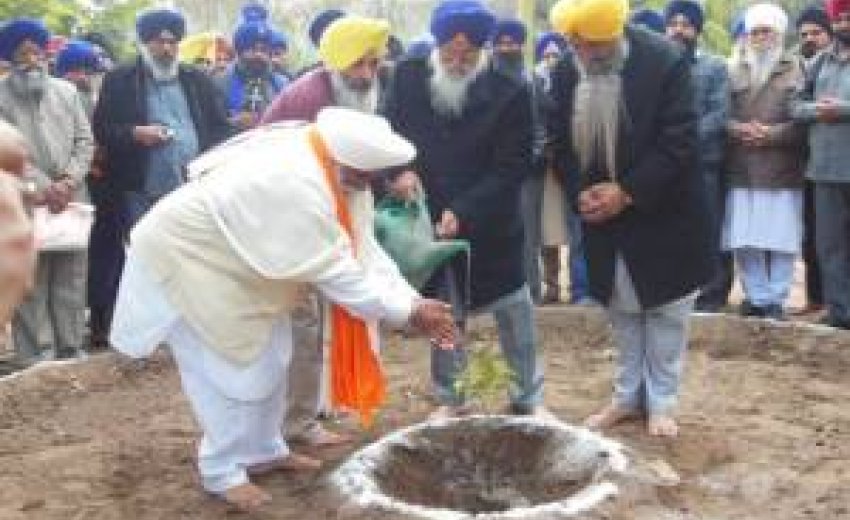
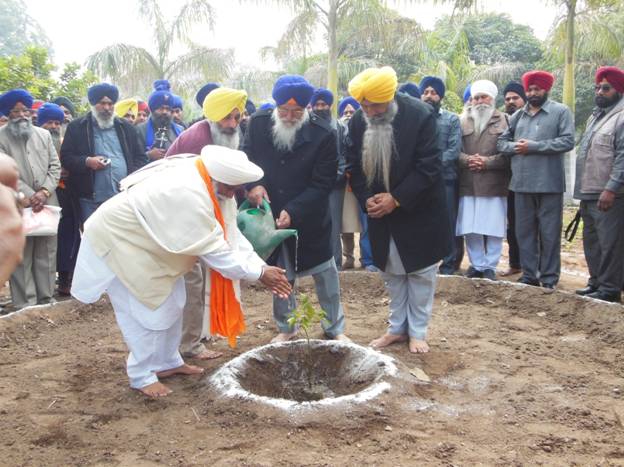
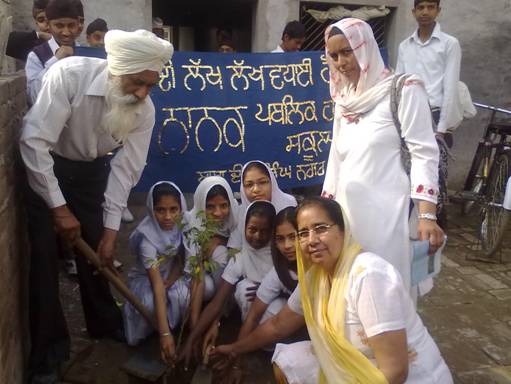

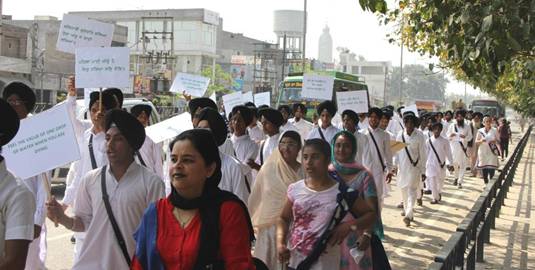

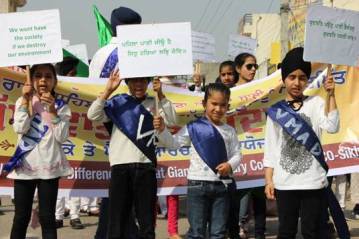
.jpg)
